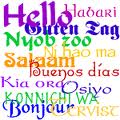Career Profile: Archivist

For some people, an old letter is just a piece of paper which is ready for the garbage. For others, the same letter is a piece of history, showing what life was like, long ago. It could show where people worked, what they ate, and what they read. The letter could be a window into the past, showing us what life was like for previous generations and also for the more recent past. Old letters, concert programs, financial statements, and other documents are all part of an archivist’s job of preserving history in documents.
If you write a message to your friends using an online program like e-mail, your message will probably not last long. In other formats like paper, however, documents can last a long time. Archivists collect these documents and then organize them so that people can find them again. Exactly what they collect depends on the focus of the archives. Collections can be small, with documents that tell the story of a village or a special group of people. They can also be very large, with information on an entire country. Archivists receive donations from people and sort through the documents to see what fits with the collection. Some collections also include objects, such as candlesticks and old lace. Books and music can also be part of many collections. Media archiving is a very common area of archiving that includes the sorting of video, film and audio recordings.
Working with archival collections requires experience in working with old documents and knowledge of the subject matter. Paper tends to fall apart when it gets old, and other materials can also be damaged as they age. Knowing how to preserve old documents and objects is an important part of what archivists learn. Many archives have climate-controlled rooms where they can keep the most fragile items at the best possible temperature to preserve them. Organizing the materials so that people can find them is also important. Archivists label the collections using combinations of numbers and letters and then compile finding aids which tell people where to look for what they need.
What kind of training do archivists need? It depends on the collection and the community that supports the archives. A master’s degree in librarianship or archival studies, or an Arts subject such as history or English literature, is often the best preparation. People who are still completing their studies can also sometimes get a good job if they have experience. Good organizational skills are essential.
Many archivists also work with volunteers who come into the archives help sort through documents, label photographs, or do other small jobs. If an archival career sounds interesting to you, volunteering is a good place to start. Archivists generally earn between about $36,000 and $71,000 per year. Although the number of jobs is limited, a career in archival work can be very rewarding. It can also be a good second career for people who have worked in something else related to information, restoration or history.
Do you enjoy learning about the past? Do old documents interest you? Maybe a job as an archivist is right for you.
Bibliography:
Association of Canadian Archivists. “Archivist Assistant/Technician.” http://archivists.ca/jobs/archivist-assistanttechnician.
Consador, Kat. “A Job Description for an Archivist.” http://www.ehow.com/about_6502171_job-description-archivist.html.
InfoNation. “Assistant Archivist.” http://www.cla.ca/infonation/jobsamp3.htm.
Payscalecom. “Archivist Average Salary.” http://www.payscale.com/research/CA/Job=Archivist/Salary.





Laisser un commentaire!